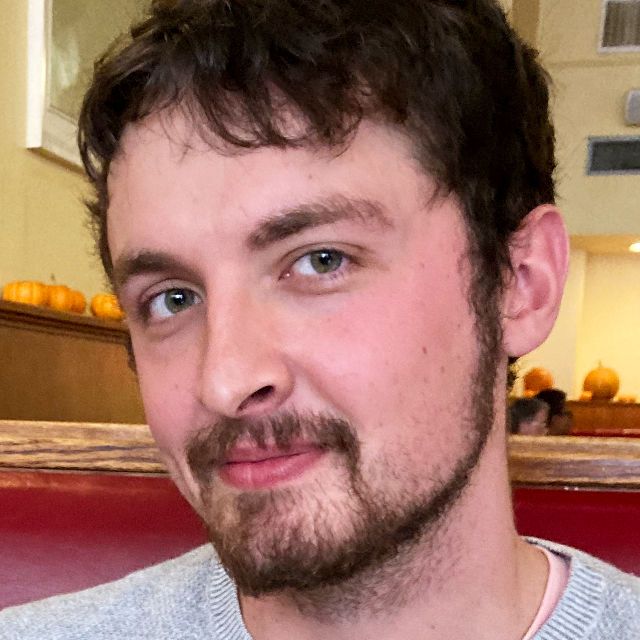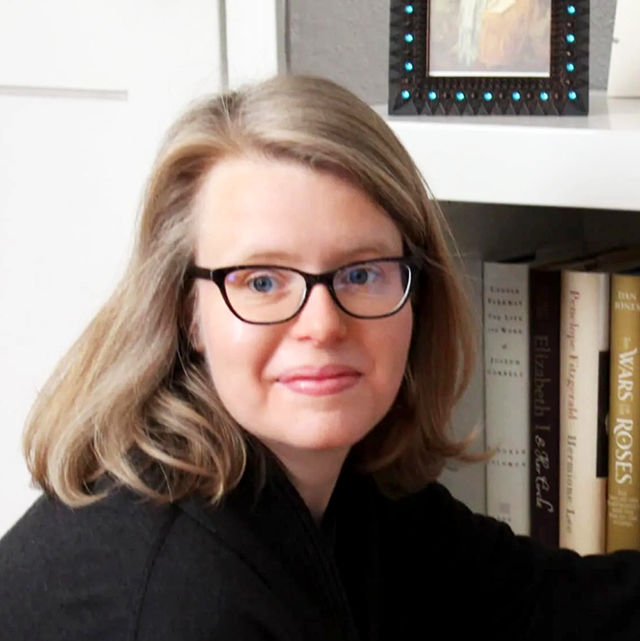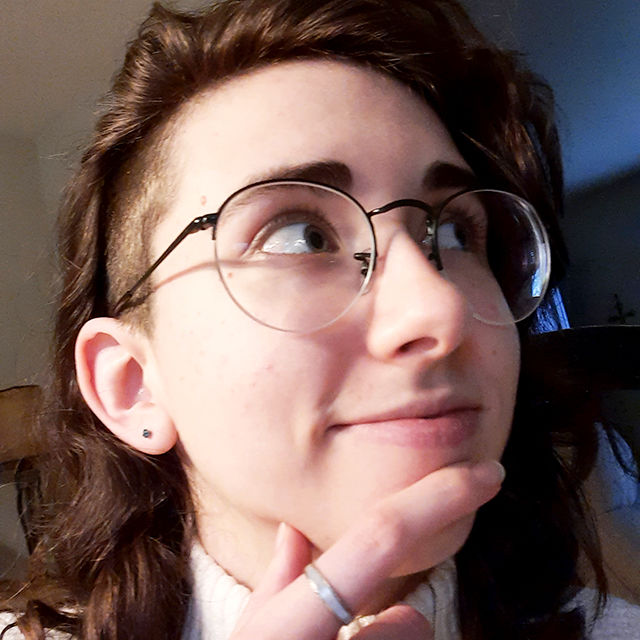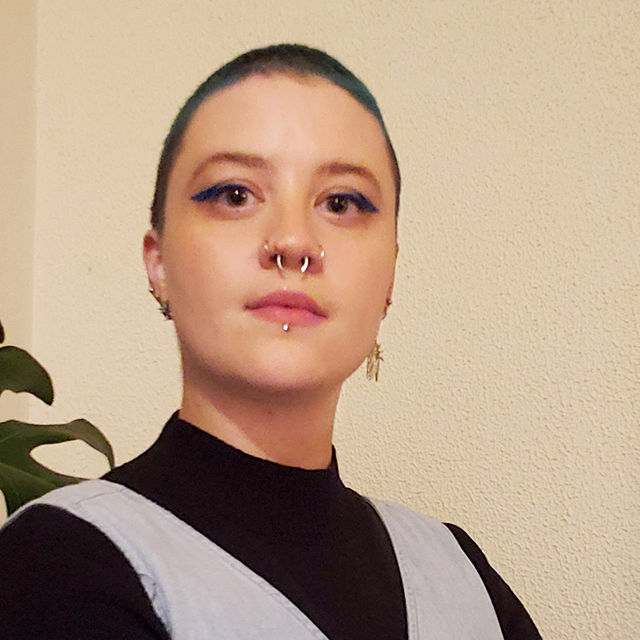
HALDAN JACOBSON—Class of 2021
Bachelor of Arts in Political Science and Bachelor of Arts in English; Certificate of Completion for a DAAD-sponsored Summer Language Course in German from Leipzig University; Certificate of Recognition from The Excellence Center in Europe in Halle (Saale), Germany
What do you currently do professionally?
Currently, I am an Educational Aide at Malcolm X Elementary School in Washington, D.C. I help children with early childhood literacy, building foundational reading skills with students in kindergarten and first grade. In June 2023, I will begin a 2 ½ year assignment with the US Peace Corps in the west African nation of The Gambia.
How has majoring in English helped you on your career pathway(s)?
Everything I have done post-graduation--volunteering to teach refugees in Germany, working for a non-profit, and now working in the public education sector--would not have been possible without my English degree -- period.
Most people don't realize this, but learning the ins and outs of English, especially improving one's writing, is a marketable skill. When I first applied to work as an Educational Aide in a public school, the principal asked me, "Do you have a background in education?" To which I replied, "Sort of." Beyond my volunteering work and brief time at the Penn State Altoona Writing Commons, I had no formal training in education. However, once I informed the principal that I majored in English, she told me that doing so counts as a secondary degree in education; and like that, I was in.
What knowledge and skills help you succeed in your job on a daily basis (and, possibly, in unanticipated ways)?
One of the beautiful things about an English degree is that, if your professors are worth their salt, you will be exposed to numerous different perspectives through literature. Any good English professor will expose their students to a multiplicity of different literary voices, philosophies, and time periods, allowing them to dabble in each and formulate their own thoughts. Luckily, this was my experience at Penn State Altoona, where all English courses exposed me to ways of thinking that I had never previously considered.
I urge all students taking an English course to approach a text with an open mind and allow their professors, with all their expertise and wisdom, to be their guides in the expansive literary world and landscape.
Without being exposed to different perspectives through my English courses, I would never have changed my mind on critical issues and begun working in my current field. Further, understanding and appreciating the importance of these issues now form the foundation for my motivation. Teaching is not always easy, and working with children has its stressors. However, what I have learned through my English courses motivates me every day through the highs and the lows of my work.
In what (unanticipated) ways has the English major impacted your life beyond your profession?
First and foremost, becoming an English major has reignited my love of reading. Previously, I was stuck in the usual young person's quagmire of video games, Netflix, and YouTube; not to say that I do not dabble in these things here and there, but they are far removed from being the centerpiece of my life, they once were. Now, I am in love with reading, and I am sailing through books at a pace that shocks my family and friends; reading is now "my thing," according to my brother.
What is beautiful and so important about reading is that, ultimately, it makes you a better thinker. The act of reading forces you to stop scrolling, focus on one thing, and work to absorb the information; it is a deliberate exercise, not just being exposed to something passively through a screen. But to learn to focus on a text fully is not easy, at least it wasn't for me, and this is again the beauty of studying English. Your professors, through their prompts and questions, will force you to think about a text through many long nights of labored deliberation and neurotic rereading of various passages.
Eventually, being forced to think critically turns into a natural reflex, much like going to the gym and struggling early on; one day leads to finding yourself performing a difficult exercise with ease. And much like the gym, where you feel your strength increase with every passing month, you can feel your critical thinking skills increase with every new book you read.
What is your favorite experience from your time in the English program?
My proudest moment from my time as an English major was presenting at the English Senior Seminar colloquium. I had spent the previous summer and fall thinking over ideas that I had learned from English 469 Slavery and the Literary Imagination. These ideas were churning in the butter mill of my head, dots being connected, stars aligned. Finally, after a whole semester of hard toil, many drafts, and countless hours in the Writing Commons, I had created something that I was genuinely proud of.
Public speaking doesn’t harbor the same sort of fear when you have something you are proud of. When presenting, I didn’t think to myself, “What will people think?” but rather, “Here is what I have to say!” It felt great to share my findings and thoughts with an engaged audience, and I encourage everyone studying English to take their Senior Seminar colloquium seriously. You can go up to the podium and shine or clumsily ramble for eight minutes; it’s up to you and the amount of dedication you put into it.
What advice do you have for current English majors or students considering entry into the field in which you’re currently working?
Go into it with an open mind. As an English major or someone interested in exploring English classes, be prepared to learn about many, many different points of view that will most likely challenge your own. As someone studying English, you will realize that there are few right answers and that history is well endowed with many imaginative writers who took the time to put their thoughts onto a page.
If you let it, studying English literature will expose you to entirely new schemas of thought, and luckily, as a person studying English at Penn State Altoona, you will have many passionate and wise professors to guide you on your journey through literature that spans centuries!
My second piece of advice is to take your writing seriously. People write with the objective of wanting to be understood by others, so this goes especially for new writers: just because you understand your writing does not mean someone else will.
Take the time to think over what you are writing; yes, it is good to get your initial thoughts onto a page, but it will take many hours of hard work and refinement until your thoughts can be digested by others. Even though we are all guilty of it, try your hardest to avoid waiting until the last minute to write your essays; your work will appear incongruent and sloppy. Also, any good English professor will gladly slice through your paper with a red pen, which is a good thing. Save every single one of your professors' annotations and take them to the Writing Commons; if you are lucky, your professor will allow you to resubmit your assignment with the updated corrections.
This is how you become a better writer as an aspiring English major: through the grueling process of putting in your best effort and having it chewed up and spat back at you. Most of us are not born good writers; only many hours of hard work and listening to your professors’ feedback will make you a better one.
Is there anything else you would like current Penn State Altoona students (of all majors) to know?
Be open-minded, try new things, and embrace the challenge! When I started at Penn State Altoona, I never imagined that my academic career would steer me towards a degree in English. I have always considered myself a person who appreciated the sciences and was mathematically inclined; I viewed reading and writing in general with a child’s resentment of a dentist. However, through chance, luck, fate, whatever you want to call it, I found myself amongst professors and peers who challenged my previous, rather naive beliefs.
Learning that I was wrong was a humbling experience, but taking classes in the humanities, improving my writing, and learning another language forced me to think in ways that I had never considered. Because of the education I received and by keeping an open mind (also my professors’ willingness to wrench it open at times), I was able to embrace a side of myself I never knew existed, and I am now deeply excited about my prospects. The road was not easy, rather, at times, grueling; however, the results were absolutely worth it.
So, I can say with confidence that no matter what major you choose, keep an open mind about your own potential and embrace the challenge of doing so!
February 2023

AMY MALLORY-KANI—Class of 2007
Bachelor of Arts in English, Penn State Altoona, 2007; Doctorate (Ph.D.) in English, University at Albany (SUNY), 2014; Certificate in UX/UI Design, Eleven Fifty Academy, 2020
What do you currently do professionally?
I am currently a product communication manager at Paperpile, an EdTech start-up, and an adjunct instructor of English at Weber State University in Ogden, Utah.
How has majoring in English helped you on your career pathway(s)?
I have held a number of different positions since graduating from Penn State: writing center tutor, English professor, marketing writer/editor, library reference assistant, and communications manager. My ability to write well--learned through my English major--has been the defining trait of my success across these roles.
What knowledge and skills help you succeed in your job on a daily basis (and, possibly, in unanticipated ways)?
I use my writing and communications skills every day. They are absolutely essential to my work.
In what (unanticipated) ways has the English major impacted your life beyond your profession?
I can't stress this enough: an English major provides you with the critical thinking and communication skills that are seriously valued in many fields. I have heard from several of my employers that my writing and research skills, creative problem-solving ability, and capacity for observing patterns and connecting those to "the bigger picture" (learned though lots of close reading in literature classes) made me a stand-out employee. Each of these things was learned, tested, and mastered through my training as an English major.
What is your favorite experience from your time in the English program?
It's hard to pinpoint a single favorite experience. However, what I can say is that my development as a writer, thinker, and human being was nurtured by the best people: committed and engaged professors who were true mentors, fellow English majors and Honors students, and all of the folks that make the Penn State Altoona campus one of the best incubators for actual growth (and I have worked at, and with, many colleges and universities since I graduated from Penn State Altoona).
What advice do you have for current English majors or students considering entry into the field in which you’re currently working?
It's tempting--and our culture makes it more so--to simply focus on acquiring the seemingly practical skills that you may need to work in communications: copyediting, digital publishing, etc. It feels good to look at a job ad and know you can check off all the boxes of those "required," and even "preferred," qualifications. However, I can't stress enough that the close reading and research competencies that you learn in literature classes will truly set you apart from other candidates.
Reading literature prepares you to notice patterns in texts and ideas, to understand people's motives and emotions, to comprehend the relationship between small, everyday acts and the "bigger picture," to appreciate the history of ideas and how that history influences the present, and to read, write, and think with critical acumen. These are the skills that employers truly value (even if you don't necessarily see them replicated in job ads).
Is there anything else you would like current Penn State Altoona students (of all majors) to know?
I could say a lot here about how Penn State Altoona is a truly special place--how there are so many opportunities to learn from generous teacher-scholars, both inside the classroom, and beyond. However, I think the best way I can answer this question is through a little story (very appropriate, I think, for a former English major).
Whenever my husband and I visit family in central PA for the winter holidays (he also went to Penn State Altoona, although he's originally from Michigan), we always take an afternoon and visit the Penn State Altoona campus. Insulated against the cold by multiple layers of clothing, we amble past Hawthorn--where many of our favorite classes were held--walk up the brick path past the library, then circle back around the Smith building. We always peep into the Slep Center to see if anything has changed, then stroll around the pond. After our loop, we take the "back way" behind Hawthorn until we end up at the parking lot where we started.
We rarely encounter anyone during these wintry adventures (except for the ever-present ducks!), but that's to be expected because of the holidays. Nonetheless, we bear the brisk weather and the campus's winter-break emptiness because it was the site of so much joy.
February 2023


